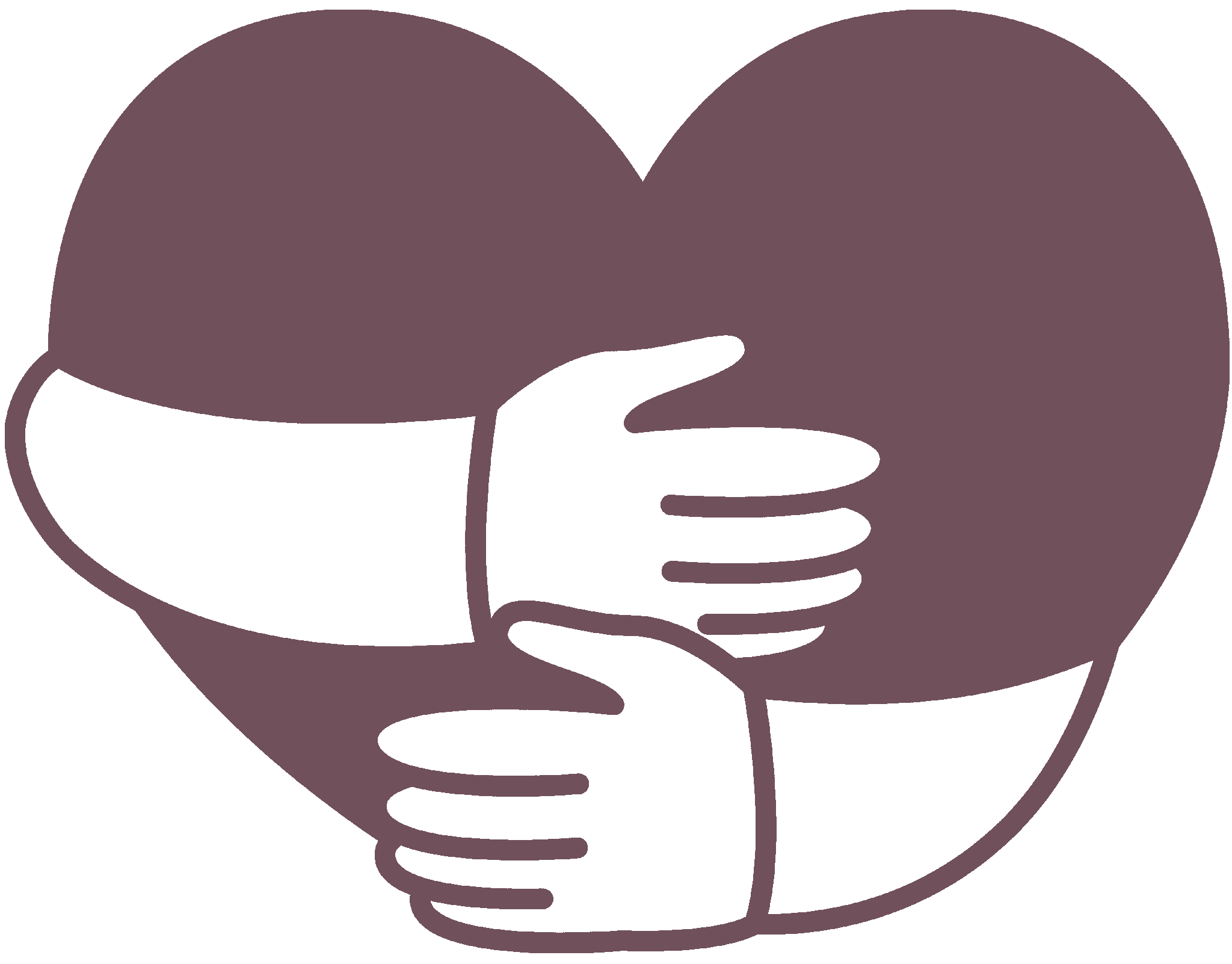Anxiety is a sensation of uneasiness and nervousness, typically generalized as a response to a circumstance that is subjectively regarded as threatening. It is a sensation that might be described as fear, stress, or trepidation. Anxiety is frequently characterized by a feeling comparable to that severe dread or panic. A sensation of worry or concern, especially about something whose conclusion is unknown, is another possible interpretation of the word anxiety.
It is frequently accompanied by bodily symptoms such as a racing heart, sweating, or shaking. Many things can trigger anxiety, such as work stress, financial worries, family problems, or relationship difficulties. For some people, it can be triggered by a traumatic event. Anxiety is a natural response to stress and life’s pressure. And when one experiences stress and anxiety at any point, it signals us to stop and examine our lives and understand we need to take care of ourselves. It’s high time for us to take action and cope with challenging conditions. However, when it becomes severe and continues for a prolonged period, anxiety has the potential to disrupt our everyday lives and create substantial discomfort.
What are the 5 common causes of Anxiety?
Anxiety can be brought on by a wide variety of different things, and the things that bring it on might vary from person to person. The following are some common triggers for anxious feelings:
- Family History: When a child or an individual observes characteristics of anxiety in their parents or other members of their family, they frequently inherit such characteristics themselves.
- Environmental Factors: Exposure to specific environmental triggers, such as stress or traumatic events, can cause anxiety.
- Medical Conditions: Certain medical conditions, such as an overactive thyroid or caffeine overuse, can cause anxiety.
- Substance Abuse: Using drugs or alcohol can cause anxiety, and quitting these substances can also cause anxiety as the body adjusts to being without them.
- Personality: People with certain personality traits, such as perfectionism or a tendency to worry, may be more likely to experience anxiety.
Anxiety can be caused by several different things, including feelings of persistent worry or dread.
How to manage Anxiety in Daily Life?
Anxiety is a normal and natural human emotion. However, when anxiety becomes severe, it can be debilitating. If you are experiencing anxiety, many treatments and self-help strategies can help.
- Remember that anxiety is normal and common: If you’re feeling nervous or anxious, know that you’re not alone. As a matter of fact, anxiousness is quite prevalent in humans and is a very well-solvable encumbrance of your life. Just because you have anxiety doesn’t mean there’s something wrong with you.
- Accept that anxiety is a part of you: Anxiety is not something you can just get rid of. It is one of the essential human emotions and is very well part of being human. And it is very natural to feel such. Accepting this can be challenging, but it’s a crucial step in managing your anxiety.
- Learn about anxiety: Understanding anxiety can help you deal with it more effectively. Self-educating about anxiety and discovering the main reason behind the arousal of such feelings can prove very important and helpful. If you become self-aware and try to search deep within, you will be able to find the real reason behind your problem. Developing self-awareness and introspective investigation should lead you to the root of your predicament.
- Identify your triggers: Certain situations and stimuli often bring on feelings of anxiety. If you know what sets you off, you may take steps to prevent it or lessen its impact if it does happen.
- Challenge your negative thoughts: Pessimistic thinking often accompanies anxiety. Confront your negative ideas if you notice yourself having them and challenge them. Try to find the cause of such thoughts and what could be triggering such negativity. And once this becomes clearer, in no time, you will be able to feel the low impact of such thoughts on yourself.
- Practice mindful breathing: When you’re feeling anxious, take a few minutes to focus on your breath. Breathe in slowly and deeply, and then breathe out slowly. This will assist you in relaxing and centring yourself in the here and now.
- Practice relaxation techniques: You can try many different relaxation techniques, such as progressive muscle relaxation, yoga, or meditation. Find one that works for you and practice it regularly.
- Get moving: Physical activity is a fantastic stressbuster. It aids in producing endorphins, which are known to improve one’s disposition. A simple stroll in the park may do wonders.
- Connect with others: Spending time with loved ones, whether family or friends, has been shown to help lessen anxiety. It is helpful to talk to someone who is familiar with what you’re going through and who can give support.
- Get some expert assistance: Seek expert treatment if your anxiety is severely impacting your life. The ability to comprehend and control anxiety can be greatly enhanced by the assistance of a trained therapist. If you believe in natural healing, you can find various healers and healing therapies using natural and natural medicinal healing properties to lower your anxiety.
- Join a support group: People who suffer from anxiety may find comfort in attending one of the many accessible support groups. Finding and connecting with others who can relate to your situation or have walked past similar paths can prove valuable in your healing journey.
- Limit your alcohol intake and any other stimulant: Anxiety may be exacerbated by alcohol. And the use of drugs and other psychedelics can worsen your situation. It can cause anxiety and make existing anxiety worse. Avoid them altogether. Caffeine may worsen anxiety symptoms as well. Moderation is key when it comes to beverages like coffee and tea.
- Get enough sleep: Anxiety might worsen when people don’t get enough sleep. Watch your sleep patterns and maintain a healthy routine. Always make sure you’re getting enough shut-eye.
- Eat a healthy diet: Anxiety may be alleviated by maintaining a balanced diet. Steer clear of sugary and processed meals and load up on fruits, vegetables, and grains that are unprocessed instead.
- Take breaks: Take a break when you find that you are becoming overwhelmed. Take a break from whatever is making you anxious and focus on breathing a few times deeply. This will assist you in refocusing and getting your bearings again.
- Do something you enjoy: Do something for yourself that you want to do without overthinking what others think about it. Make time for things you enjoy, such as reading, music, or outdoor activities. This will help reduce your overall stress level and make you feel better.
- Be patient and persistent: Recovering from anxiety is a process that can take a while. Have some self-compassion and realize that progress takes time. It may take time and patience to feel better from anxiety, but you will definitely start feeling better if you put in the necessary time and effort.
Anxiety disorders come in a wide variety, and their symptoms vary widely from one another. A Sister anxiety disorder that is more common in today’s life due to high stress includes panic attacks, phobias, social anxiety disorder, and many more. These can arise from a person’s current environment they live in, family conditions, professional stress, childhood, or past traumas. Whether it’s present or past traumas or stressors, most people are usually embarrassed or ashamed to feel their feelings and fully acknowledge them. They might believe even awareness and acknowledgement of their conditions will make them any less. Concerning the seriousness and veracity of their medical effects, anxiety disorders are on par with other well-known illnesses like heart disease and diabetes.
Common Anxiety Disorders
Anxiety comes in many forms, each with its own unique collection of signs and symptoms. These can typically be but are not limited to these:
Generalized anxiety disorder (GAD) is characterized by excessive, exaggerated anxiety and worries about everyday life events with no apparent reasons for concern. This condition lasts for a significant period and can cause a person to feel concerned about a wide variety of situations.
Panic disorder is a type of anxiety characterized by the occurrence of panic attacks. This type of anxiety can cause sudden and intense episodes of fear and anxiety.
Social anxiety disorder (SAD), also known as social phobia, is when a person has an unreasonable fear of being in social situations. This kind of anxiety can make a person uncomfortable around others. The person experiencing social anxiety often feels strongly afraid of being judged and embarrassed by other people and very nervous and uncomfortable in public settings and dealings. This fear can interfere with the way of work, school, and other things you do every day.
Obsessive-compulsive disorder (OCD) is an issue characterized by anxiety that can lead a person to experience unwanted and intrusive thoughts, i.e. obsessions, and to engage in repeated and ritualistic actions, i.e. compulsions.
Separation anxiety disorder is an anxiety condition associated with the feeling of separation and loss of connection with parents or other loved ones. It is most commonly experienced in childhood when children usually experience separation from their parents or caretaker. But due to modern-day social bonds and relationship dilemmas, this has also become common in adults.
Specific phobia is an extreme and irrational dread of a particular thing or circumstance. The individual is aware that their fear is overwhelming and unreasonable. Still, they are unable to calm their racing thoughts and feelings of panic. They often avoid situations or objects that trigger their phobia.
In conclusion, anxiety is a normal and common human emotion that everyone experiences at some point in their lives. While it is a natural response to stress and pressure, severe anxiety can have a debilitating impact on our daily lives and well-being. However, by recognizing and accepting anxiety as a part of being human, understanding that it is not something to be feared, and implementing effective coping strategies such as identifying triggers, challenging negative thoughts, practicing relaxation techniques, staying active, and connecting with others, we can effectively manage and reduce the impact of anxiety in our lives. If anxiety continues to cause significant distress and disrupt our daily functioning, it is essential to seek professional support.


